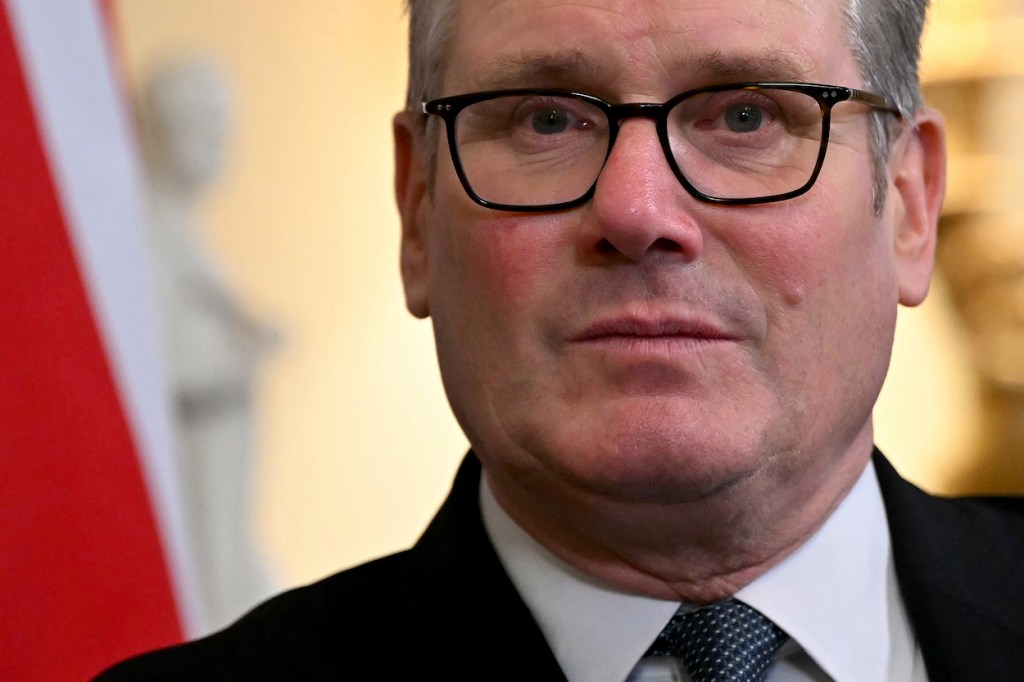As a championship chess player, Rachel Reeves must know that the first few moves can be some of the most important of the game. In preparing her Budget, she appears to be starting her tenure as Chancellor from a position of strength. Her background in the Bank of England gives her institutional credibility, and the size of Labour’s majority means she faces little opposition in the Commons.
But the truth is that her room for manoeuvre has been dramatically limited by decisions she has already made. Unforced early errors, as well as an election strategy that prematurely took options off the table, have left her with only a handful of choices, fewer of which are palatable.
I was in the room the last time a chancellor fresh to government had the responsibility of delivering a new administration’s first Budget. As chief of staff to George Osborne in 2010, I knew that the decisions we made would not just affect millions that day but would set the tone and direction of the whole government for the next five years. We couldn’t afford missteps.
Reeves has to balance the Budget without breaking the promise not to touch the three biggest taxes
Reeves’s decision to abolish the winter fuel payment for all apart from the poorest pensioners is her most obvious early mistake. It may have saved her £1.5 billion, but it has cost her goodwill, both in the parliamentary Labour party and with the electorate. I can’t think of any previous chancellor who would have made that their first move in office. It’s a gambit which sacrificed pawns for no positional advantage. It’s little wonder that previous Treasury insiders, including Ed Balls, have questioned her political judgment.
Even bigger problems loom. Almost all the government’s political ambitions require significant increases in public spending, which will mean significant tax rises. This reality has been obvious since well before the election campaign, despite promises designed to mask that inevitability. The attempt after the election to construct a surprise £22 billion black hole in the public finances is a transparent effort to help to justify those higher taxes. Voters who were promised just three months ago that working people would be spared tax rises won’t be so easily fooled.
Yet despite the certainty of tax rises, Reeves and Keir Starmer spent the election campaign repeatedly ruling out increases in any of the main three taxes: income tax, national insurance and VAT. To paraphrase one of the great chancellors, Geoffrey Howe, they have broken their own cricket bats, thrown away their pads and put their helmets on backwards before heading out to the crease. Many veterans of the Blair government privately despair at the extreme political risk aversion that led to this rash pledge. Gordon Brown in 1997 and Osborne in 2010 were both careful not to get pinned down so explicitly. Instead, Reeves is left with a huge political challenge: how to balance the Budget without breaking the promise not to touch the three biggest taxes.
By far the Chancellor’s greatest advantage in confronting this conundrum is the quality of the Treasury civil servants helping her. Even the Treasury’s many critics will concede that there is one thing at which it excels: making the numbers add up. Of course, Budgets can unravel – I am still scarred by the furious press reaction to the ‘pasty tax’ in 2012 – but that is almost always the fault of the politicians.
The experience and institutional memory of the team around Reeves should be invaluable to her. Her canny permanent secretary, James Bowler, was head of the Budget in the early 2010s, and has built a career defusing conflicts between 10 and 11 Downing Street. Her brilliant second permanent secretary in charge of tax and welfare, Beth Russell, is another former Budget head who also served as Osborne’s principal private secretary and Brown’s speechwriter. And the man currently tasked with making the Budget sums add up – Will Macfarlane – was the Treasury’s head of fiscal strategy between 2009 and 2012, a period when the UK’s fragile public finances fell apart and had to be put back on track. Today’s challenges must feel like a walk in the park by comparison.
Reeves and her team face a tight timetable between now and Budget day. This week she has received the first ‘post measures’ forecast by the Office for Budget Responsibility (OBR), which will be crucial because it tells her not only its forecasts for growth and borrowing but also its judgment about the economic impact of the Budget’s major policies. Her final decisions on those major measures are due early next week, and all remaining decisions must be submitted by next Friday, five days before the Budget is delivered. One of the many improvements in Budget-making brought about by the creation of the OBR is that the last-minute ‘essay crisis’ Budgets of the past are now impossible, although for the Chancellor this strict timetable can feel like a curse.
So which taxes will rise, given that the easy options have been ruled out? The answers appear to be evolving rapidly when ministers are confronted with the OBR’s harsh reality. It’s clear that Reeves and her advisers came into government with some extremely optimistic numbers – largely provided by pressure groups and left-leaning thinktanks – for what could be raised from increasing various taxes on mobile international capital and the wealthy.
One by one, the rigorous and evidence-based methodology of the experts in the Treasury and the OBR has cut these numbers down to size, whether on capital gains tax, inheritance tax, VAT on school fees or changes to the rules for non-doms. Those Conservatives who have been suspicious of the OBR should note the way that it has skewered wishful thinking from the left just as effectively as from the right. In the Treasury, quite rightly, evidence is king.
The search for higher tax revenues has predictably returned to that reliable workhorse, employer national insurance contributions – whether paid on salaries or potentially on pension contributions. Starmer, in a clumsy pre-emption of the Budget, has all but confirmed employer NICs will rise. I hope you are looking forward to weeks of debate about whether raising employer NICs was or wasn’t covered by Labour’s election pledges (it was) and whether the cost actually ends up falling on individuals in the form of lower wages (it does). What probably matters more for Reeves is that these revenues are reliable and predictable.

She may also take the long-held Treasury view that it’s much easier to defend one large tax rise than many smaller ones. The 2012 Budget is a case in point here. Osborne was very keen to cut the then 50 per cent top rate of tax to help attract talent to the country and boost growth. The Liberal Democrats agreed, but only in return for a very expensive increase in the personal allowance. Only too happy to support a personal tax cut, we ended up finding some of the money to pay for it by closing a lengthy list of tax loopholes which had long been served up for the chop by earnest tax officials only to be sensibly rejected by successive chancellors. It’s no surprise that some of these plans unravelled.
Incidentally, Osborne, Nick Clegg and Danny Alexander had come to a coalition agreement to cut the top rate of tax all the way back to 40 per cent, conditional on introducing a set of higher council tax bands for properties worth more than £1 million.
In the end we only got it down to 45 per cent because David Cameron wanted to avoid accusations that the government was bringing in a mansion tax. I have no doubts that all the work on higher council tax bands has been dusted off and updated in recent weeks.
The other way in which Reeves will solve her Budget dilemma will be to borrow a lot more money to pay for investment in infrastructure. The debate about exactly which tweaks to the fiscal rules might allow her to do this involves a lot of acronyms, but all that really matters is one simple point: borrowing is borrowing, whether it meets an arbitrary rule or not. Given that the country already has the highest levels of debt since the 1960s and that the existential fiscal crisis from two years ago is still fresh in markets’ memories, the prospect of more borrowing will raise risks for the future.
The OBR has skewered wishful thinking from the left just as effectively as from the right
Reeves is probably right that the country needs more infrastructure investment, but it could be better paid for with higher taxes or lower spending elsewhere. It seems this Chancellor has already spent the former and won’t countenance the latter. The political judgment on the Budget over the next few weeks will therefore depend on whether voters like promises of new rail lines and hospitals more than they dislike tax rises, broken election pledges and higher debt.
The more important judgment, whether or not it was all worth it, may only begin to become apparent in four or five years’ time. Despite all the talk during the election of a plan for growth, there is surprisingly little evidence that the government has one.
Labour may still be bailed out by a factor in the economic cycle beyond the control of any chancellor: lower interest rates. With rates up at 5 per cent, there is plenty of scope for central banks around the world to juice the economy in response to any economic weakness that emerges in the next few years. That would probably do more for Labour’s re-election chances than anything in the Budget. But in politics it is perilous to depend on forces beyond your control. It cannot be comfortable for she who would be queen to be a pawn in others’ hands.
Listen to Rupert Harrison and Kate Andrews on The Edition podcast:








Comments